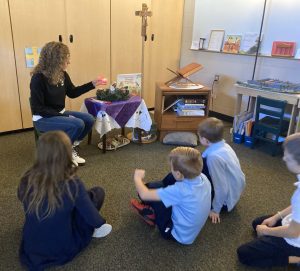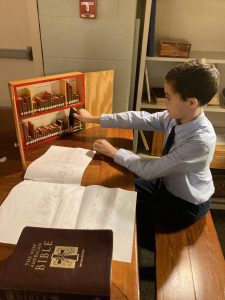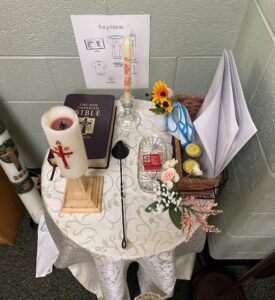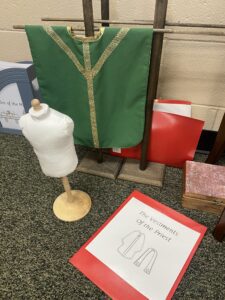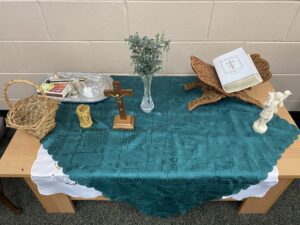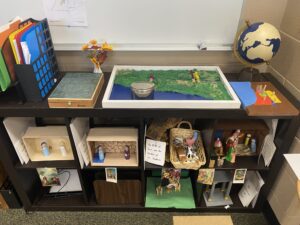The philosophy of the Catechesis of the Good Shepherd program is that even very young children have a religious life. God is present to them in their deepest being and they are capable of developing both a conscious and intimate relationship with God. The program balances exposure to our liturgy and the richness of our communal sacramental life with reading the Bible. Our program begins with presenting the New Testament to the children because it is the foundation of our faith. The youngest learn about Jesus and the beauty and wonder of the Kingdom of God through carefully chosen Bible verses that foster a deep love for Jesus. As they grow older they are encouraged to think about their personal responsibility to maintain this relationship with God and their social responsibility in the world. Each presentation has specific materials designed to draw the child into the Biblical and Liturgical themes. These materials are always available to the children during their work time so they have additional opportunities to absorb the lessons. Classes are structured to offer a time of prayer and song, a time for the “presentation” and a time for individual work by the child. The work of the children is their prayer and is the most important part of their time in the atrium.
Currently Level I, Level II and Level III are integrated into our school curriculum. Each class spends 30-40 minutes per week in the Atrium.
Level I (Ages 3-6)
This foundational level introduces basic Christian concepts like God as the Good Shepherd, the story of creation, the birth of Jesus, and the importance of the family, using simple materials and presentations to help young children grasp these ideas through sensory experiences.
Level II (Ages 6-9)
Building on Level I, children begin to explore the life of Jesus in more detail, including the miracles, parables, and the Passion narrative, with a focus on the concept of the Kingdom of God and the development of a personal relationship with Jesus.
Level III (Ages 9-12)
At this level, children delve deeper into the theological aspects of the Christian faith, examining the sacraments, the Church as a community, and the social implications of the Gospel, encouraging them to reflect on how their faith can impact their lives and the world around them.

